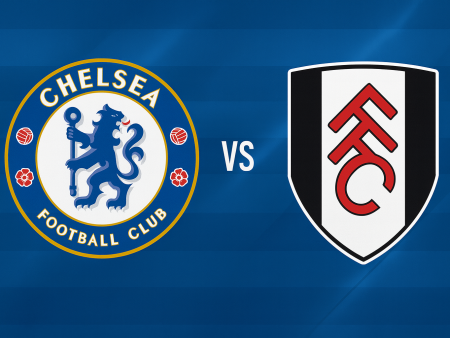Exploring "Play with Your Brain": How Travis Norsen Aims to Revolutionize Soccer Education
The celebrated quote by Dutch football legend Johan Cruyff, “Football is a game you play with your brain,” succinctly encapsulates the core philosophy of Travis Norsen’s book, Play with Your Brain: A Guide to Smarter Soccer for Players, Coaches and Parents. Norsen’s work offers a comprehensive approach to developing intelligent soccer players and seeks to enhance the experience for everyone involved in the sport-from players and coaches to parents. In this exclusive interview, Norsen delves into the inspiration behind his book and shares actionable insights for elevating youth soccer.
The Motivation Behind Writing "Play with Your Brain"
The journey of Play with Your Brain started with a simple, yet pressing need. As a coach for a youth team, Norsen found himself struggling to effectively share big-picture concepts during hectic practice sessions. While brief coaching cues are useful, providing deep strategic explanation within the heat of training is often impractical.
To bridge that gap, Norsen envisioned a resource that players could engage with off the field. "Practices alone aren't enough," he notes. Real understanding of the game requires time, reflection, and independent learning-something rarely feasible during live training sessions.
Bringing Academic Teaching Strategies to the Soccer Field
Norsen's background as a college physics instructor significantly informed his approach. He had already discovered that passive, one-size-fits-all lectures do not deliver the best learning outcomes in the classroom. Instead, he adopted a model where students absorb foundational material through pre-class readings, reserving class time for discussion, Q&A, and deeper application.
Translating this to soccer, Norsen recognized parallels between education and coaching. Giving players a "textbook" for the sport would prepare them intellectually before stepping onto the pitch, allowing practice sessions to focus on advanced tactics, problem-solving, and team chemistry rather than basic explanations.
The Impact of the Book-Early Results and Challenges
When the book was finished in early 2020, Norsen distributed copies to his team. However, the COVID-19 pandemic canceled competitive play, limiting opportunities to fully integrate the book into his coaching approach. Still, anecdotal feedback highlighted meaningful benefits:
- Several players reported substantial improvement in their tactical awareness after reading the book.
- Some became more receptive to coaching points, as the concepts felt familiar from their reading.
- For certain players, the book helped spark a rapid transformation in decision-making and overall gameplay.
Yet, Norsen admits that not every player engaged deeply, and a few others showed little change despite reading it. This result demonstrates the diversity in learning styles and motivations among youth athletes. Nevertheless, the potential for significant growth when players, coaches, and parents fully adopt the philosophy remains promising.
Understanding "Smarter Soccer": What It Means to Play with Your Brain
Central to Norsen’s message is the idea that soccer is not just a physical sport, but a cognitive one. To him, “playing with your brain” means:
- Observing and analyzing the current situation before making decisions on the field.
- Applying rational thought to actions, rather than acting reflexively.
- Reflecting on outcomes in order to learn and adapt.
This approach is important at both the micro level (individual moments, such as receiving a pass) and the macro level (strategic choices about team play or individual roles). Soccer, like many other life pursuits, requires critical thinking and continual self-improvement.
Learning Through Mistakes: The Most Overlooked Mental Skill in Soccer
Norsen highlights one vital skill that many youth players overlook: self-assessment. Too often, young athletes fail to pause and critically evaluate what worked, what failed, and why. For instance, early successes-like singlehandedly dribbling through a weak defense-rarely translate as the game grows more complex. Players must evolve and recognize soccer’s deeply collaborative nature.
Fast learners analyze their mistakes, adapt, and seek better solutions-the true hallmark of a smart player. Norsen asserts that fostering this learning mindset is crucial for long-term development and success on the field.
Challenging Cultural Norms: Changing Attitudes Toward Passing Backward
Many young players instinctively push forward, equating success with advancing toward the opponent’s goal. Norsen explains that this forward-focused mentality can be counterproductive as skill levels rise and defensive tactics become more sophisticated.
A significant barrier to smarter, strategic play stems from adults-parents and coaches-who sometimes discourage or even chastise players for making calculated backward passes. This misplaced criticism undermines young players’ confidence and learning. According to Norsen, adults must shift their perspective, supporting thoughtful decisions and understanding that progress is sometimes best achieved by repositioning and retaining possession.
Effective Communication: More Than Just Words on the Soccer Field
Communication is critical to successful team play, but it extends beyond shouting directions or calling for the ball. Norsen devotes an entire chapter to the idea that movement and positioning-“yelling with your legs”-can be even more powerful. By consistently making themselves available and visible, players send clear signals to teammates, often eliminating the need for words altogether.
Non-verbal communication is especially empowering for shy or less vocal players, enabling everyone to contribute meaningfully to the team dynamic. When clear expectations and tactical principles are well understood, these subtle cues become second nature.
Enabling Parents and Coaches to Support Smarter Soccer
One distinguishing feature of Play with Your Brain is its accessibility for not just players but also their parents and coaches. Norsen believes that adults’ understanding of soccer’s fundamental tactical truths is essential for nurturing young athletes. When families participate in the learning process, they can offer encouragement, ask better questions, and respond productively to challenges.
Key Takeaways for Building a Soccer IQ
At its heart, Norsen’s book is a call to elevate the “big-picture” understanding of the game. Key themes include:
- Familiarization with universal “principles of play”-the core ideas that underpin quality soccer.
- Prioritizing team effectiveness over individual heroics.
- Encouraging critical reflection and collaborative problem-solving.
- Creating an environment where intelligent risks and considered mistakes are seen as stepping stones to improvement.
While the book contains specific tactical advice and actionable tips, its deeper purpose is to help readers see and aim for what great team soccer truly looks like.
Where to Find the Book and More Resources
Play with Your Brain is available online and through local bookshops. The publisher, PigPugPress, shares additional updates and resources, and readers are encouraged to participate in ongoing discussions about soccer education.
For those interested in further reading, related articles examining youth coaching, positive leadership, and player development strategies can provide additional guidance and perspective.
Conclusion
Travis Norsen’s Play with Your Brain is more than just a guide for youth soccer-it’s an invitation to create a culture where thinking players, informed coaches, and supportive parents work together for smarter, more effective, and enjoyable soccer experiences. By embracing a learning mindset and using the brain as much as the feet, the next generation of soccer players can reach new heights both on and off the field.













